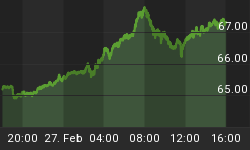April 29, 2008
Yahoo! (YHOO) recently released its first-quarter earnings numbers, and neither the market nor analysts were impressed. What will be the company's next move? Multiple suitors claim that they can leverage Yahoo!'s online products and talented employees better than Yahoo!'s widely criticized management is doing. The leading bidder is Microsoft (MSFT), whose $40 billion offer it is prepared to take directly to Yahoo! shareholders via a proxy fight. Other proposals said to be in the running are an advertising collaboration with Google, a merger with AOL, and a possible deal involving News Corp (including MySpace).
The stakes are high. The right move could lead Yahoo! to a new level of innovation and profit, while the wrong move could cause the company's value to plummet.
Unfortunately, the fate of Yahoo! will not be determined simply by who makes the best proposal to shareholders -- but by whose proposal antitrust bureaucrats arbitrarily deem sufficiently "competitive."
Consider the Microsoft bid. If Yahoo! shareholders decide the Microsoft bid is best for their company, and want to move forward immediately with the challenging task of combining two companies with thousands of employees, they may be prohibited from doing so. Antitrust enforcers could hold up progress for months deliberating whether the merger is "anticompetitive" -- and then possibly kill it altogether. Competitor Google is cheerleading this outcome, claiming on its official blog that "Microsoft plus Yahoo! equals an overwhelming share of instant messaging and web email accounts. And between them, the two companies operate the two most heavily trafficked portals on the Internet."
But a Microsoft and Yahoo! combined market share offers no threat to competition whatsoever -- a fact that search-giant Google should know, given that the once-puny company was able to out-compete the once-dominant Yahoo! and the mighty Microsoft. Whether a market is competitive is not determined by the number of competitors or the percentage of customers that choose to buy their products; it is determined by whether companies are free to attempt to outdo one another to win over customers with superior products. The fact that someone is winning in a market by a large margin does not make the situation anti-competitive. It illustrates that competitive freedom has produced a company with superlative products.
Google, Microsoft, and Yahoo! have high market shares only insofar as their products are more appealing to consumers than are their competitors'. None of these companies, or any combination of two or even three of them, can force a single consumer to use its services instead of a more attractive search engine or web portal available -- nor can it prevent competitors from outdoing it with superior products.
A Microsoft-Yahoo! combination could not threaten competition. To the contrary, it would be an act of free competition, an ambitious attempt by two companies to improve their products by combining strengths. What would actually stop competition would be to prevent the shareholders of these companies from making a move they regard as vital to their success.
The threat of antitrust prosecution is also impeding Google's own efforts to make a deal with Yahoo!. Google has proposed that Yahoo! outsource its search advertising to Google, a move that some analysts say could boost Yahoo!'s ad revenue by 25 percent. Unfortunately, if Yahoo! agrees to the deal, the government will likely kill it because, once again, the companies have a high combined market share. According to Reuters, "Antitrust experts said regulators would likely oppose any permanent alliance between Google and Yahoo." And, just as Google is calling Microsoft's bid anti-competitive given its market share, Microsoft is saying the same of Google: "Any definitive agreement between Yahoo and Google would consolidate over 90 percent of the search advertising market in Google's hands," Microsoft's general counsel complained. "This would make the market far less competitive."
In reality, no deal between Google and Yahoo! is a threat to anyone besides inferior competitors; neither company can force even one person to click on www.google.com. Yahoo! should be able to field and accept any offer from Google it chooses -- including a full-blown acquisition. Indeed, it is very possible that if cash-rich Google were not terrified of antitrust prosecution, it, like Microsoft, would try to acquire Yahoo! outright. Such a deal might be Yahoo! shareholders' best option and make possible a whole new level of Internet content -- but under antitrust, it won't even come to the table.
What we are observing in the battle over Yahoo! is not genuine, merit-based competition, but competition based on political pull. He who cajoles antitrust bureaucrats to endorse his deal and stop his competitors, wins.
Instead of attempting to outdo one another in crying to the government, Google and Microsoft should take a principled stand in favor of open competition for Yahoo! -- a competition in which the company's fate is decided by who makes the best business proposal and not who has the craftiest lobbyists and lawyers.
More broadly, they -- and we -- should call into question the antitrust laws that make competition-by-pull possible.















